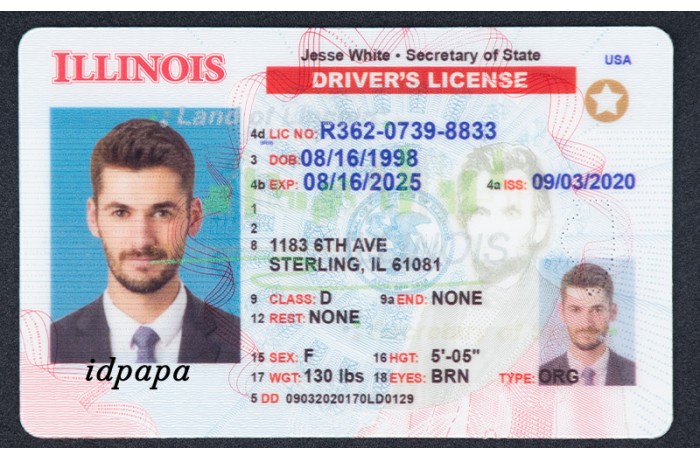Decoding Scannable copyright: The Tech Behind the Fraud
Wiki Article

The scene of copyright identification is a constantly changing landscape. Forgers are now leveraging cutting-edge technologies to create copyright that can often trick even the most strict scanning technologies. These imposters are often indistinguishable from genuine IDs, making them a growing threat. To combat this challenge, authorities are deploying their own advanced technology to uncover these fakes.
- One of the key aspects behind scannable copyright is the use of custom inks that can be read by standard scanners.
- These dyes often contain embedded data that mimic the verification features found on genuine IDs.
- Nevertheless, experts are constantly working to innovate new technologies to identify these imposters.
The future of addressing copyright fraud is likely to involve a mixture of cutting-edge scanning technologies, artificial intelligence, and enhanced policies.
Get Scannable copyright Creation: A Step-by-Step Guide
So you need to make a scannable copyright? It's a dangerous endeavor, but if you proceed, here's your roadmap. First, you'll need high-quality photo editing software like Photoshop. Then, gather a valid ID as a model. Use the application to modify the data, replacing them with your false identity.
- Then, print the altered ID on high-resolution paper.
- Ensure the printer uses ink that's compatible with holographic strips for maximum realism.
- Finally, laminate the ID to strengthen its durability.
Keep in mind: Using a copyright is illegal. This guide is for illustrative purposes only and discourages any illegal activity.
Craft a Scannable copyright? Timeframe Matters
So you're wanting to know how long it takes to whip up a copyright that can actually fool those scanners, huh? Well, lemme tell ya, there's no magic number. It all boils down to a bunch of factors. You got your materials, your know-how, and even the model of ID you're after. A basic card with a simple image might take a weekend warrior a few hours, maybe a day if they're beginner. But if you're aiming for something elaborate with detailed graphics, you could be looking at a week or more. Plus, don't forget the drying time for inks and laminates. That can add up!
The bottom line? There's no quick fix for a scannable copyright. You gotta put in the time to get it right, or you could end up with something that gets flagged faster than you can say "I.D. please!"
The Cost of a copyright That Can Be Scanned
Thinking about snagging one of those IDs that can be scanned? That's probably what you're thinking it's just a small payment. But, let me tell you, it's more complex than that. , It's not just about the cash you're risking your future. Getting caught with a copyright can have real consequences, including hefty fines, community service, and even jail time.
, But don't forget: even if you manage to avoid getting caught, there's still a chance on you. Imagine trying to use a copyright for something important like renting a car - your credit history and future chances could be affected.
Verifying Your IDs: Can They Be Read by Scanners?
In today's digital/tech-driven/modern world, identification/IDs/personal documents are often scanned/read/processed electronically. But have you ever stopped to question/wonder/think if your copyright/copyright/government-issued ID is actually readable/scannable/compatible with check here the latest technology/scanning equipment/devices? A faded/damaged/incorrectly formatted ID can cause/lead to/result in serious inconveniences/issues/problems, from delayed entry/denied access/verification failures to frustration/confusion/security risks. To ensure/guarantee/confirm your ID is properly scanned/read accurately/accepted without issue, it's important to pay attention to/examine carefully/inspect thoroughly its key features/characteristics/design elements.
- Ensure text and barcodes are clear and legible
- Assess ID condition for any signs of deterioration
- Confirm your ID meets current standards and includes required security elements
By being aware/taking note/staying informed of these indicators/signs/factors, you can avoid potential headaches/prevent complications/ensure a smooth experience when using your identification/copyright/government-issued ID.
Are They Detectable? The Risks of Using Scannable copyright
Scannable copyright appear like the ultimate solution for getting into clubs or buying booze. But let's face it, these aren't foolproof. Security is always stepping up, with scanners becoming more advanced every day. Using a scannable copyright is like playing a game of chance. Sure, you might pull it off the first few times, but eventually, the risk of getting caught becomes unbearable.
A conviction can have serious consequences, like fines, community service, or even legal trouble. Not to mention the harm it could do to your future.
- Consider the risks
- The game isn't worth it